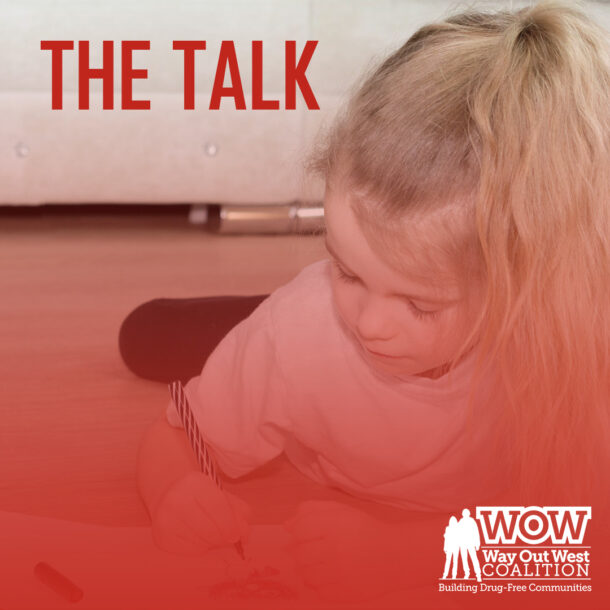It is not always easy to start conversations with your children about certain topics. They can become awkward and uncomfortable fast. But those are the types of conversations that are the most important for your family’s future. You know the talk, right? The talk you have with your child about your expectations on alcohol and drug use.
It is never too early to talk with your children about the risks of substance abuse. Research suggests that one of the most influential factors for children is a strong, open relationship with a parent. Though it may not seem like it, children really hear your concerns, and it is important that you discuss the risks of substance abuse with them. Young people are more likely to listen when they know you are on their side. Reinforce why you do not want your child to drink or use other drugs—because you want your child to be happy and safe. The conversation will go a lot better if you are open and you show concern.

Try to hit all 5 of these talking points when you speak with your children:
- Let them know you are NOT ok with underage drinking or using drugs
- Tell them you care about their health, well-being, and success in life
- Show you are a good source of information about alcohol and other drugs
- Show you are paying attention so you can discourage risky behavior
- Build your child’s strategies and skills to avoid alcohol and drug use
An important part of the strategies and skills is to develop an exit plan with your family. An Exit Plan will help your child know what they would do if faced with a decision about alcohol and drugs with their peers, such as texting a code word to a family member or practicing how they’ll say “no thanks.”
What is also important to realize is the talk does not have to be this long drawn out conversations. It can be a series of short talks and they can be impromptu, such as in the car or during dinner. Because lots of little talks can be a lot more effective than a big long talk.
It’s important to continue the no use message throughout adolescence, especially as they enter junior high and high school, where the pressure to try alcohol or drugs increases. Having those short conversations will help build an open trusting relationship with your child. With that openness they will feel more comfortable coming to you when to discuss serious situations with alcohol or other drugs.
Remember when you talk often with your child about alcohol or drug use, it is important to set a good example. If you choose to drink, you can positively influence your child by drinking in moderation and NEVER driving when you have been drinking. Be aware of where you keep your alcohol, prescription drugs or other substances and always remind your child that those substances in your house are off-limits. Even though the talk can be awkward, remember, this is your child’s future at stake, do not wait Get in the Way.
Author Alva Tovar is the Program Coordinator for the WOW Coalition. This prevention association promotes safe and healthy choices and responds to alcohol, marijuana, and Rx abuse problems by implementing strategies to prevent and reduce youth substance use. For additional information, visit http://www.wowcoalition.org/resources or email: alva.tovar@wowcoalition.org.

